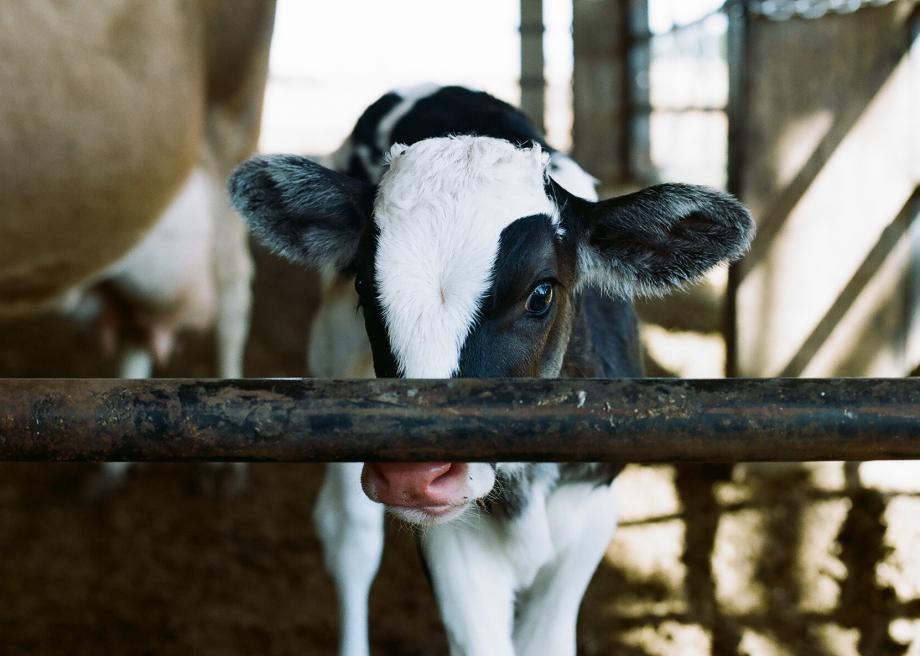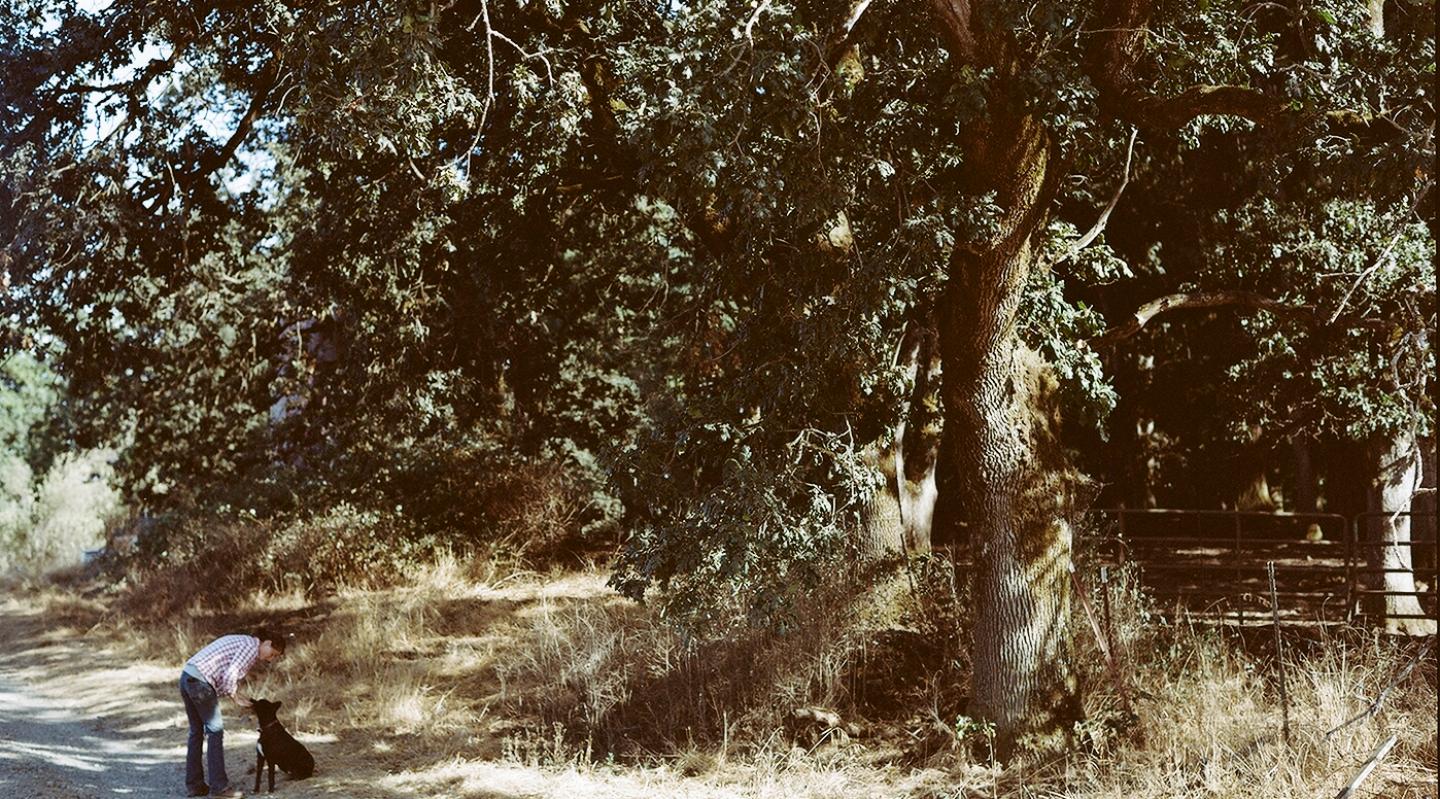
The Millennial Dairy Farmer
What does it mean to be a young farmer in an age-old industry?
Bobbi Harrold Frost walked methodically around the sprawling acres of her Oregon land, taking in the familiar sight. Her cows mooed and the calves lay in their hutches; the heifers gathered together as they rhythmically chewed their feed, and the pregnant cows lazily rested in the barn nearby. Frost grew up on this farm, a meticulously kept place with a vista of golden fields that goes on for miles. She has seen the changes it’s been through in her lifetime. She and her peers are well aware of the changes that came before her and the ones that will likely come in the future.
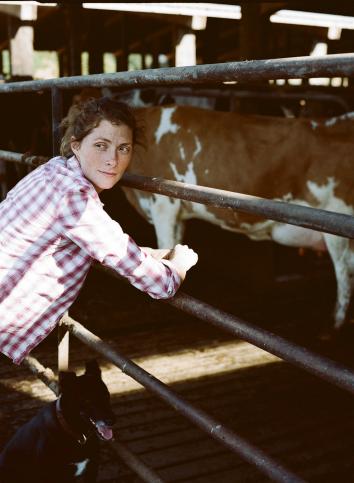
Photographs by Parker Fitzgerald
Only 25, Frost isn’t what many think of as the “typical” farmer. But she was born into the business and has become a prominent face in the Creswell, Oregon, farming community, where she owns (in partnership with her father) Harrold’s Dairy Farm.
Frost is among a niche group of millennials, 20- and 30-somethings, who are turning to farming. Some carry on traditions that have been passed down through the generations and some are new to the business. But all are adding new and innovative twists to the age-old industry along the way. In Frost’s case, it was her great-grandfather who founded the family farm in 1946 with only 12 cows on his land. Today, the farm has expanded exponentially since its inception and milks 450 cows.
Frost is an expert when it comes to raising cows on her more-than 200 acres of Oregon land. She speaks easily and intelligently about local agriculture, organic and conventional farming practices, laws and regulations surrounding the industry, and the science and medicine behind taking care of her animals.
“I think a lot of times when people think of a farmer, they think of an old man in overalls with a piece of straw hanging out of his mouth, but that’s certainly not the case -- at least not anymore,” said Frost. “There is a disparity of expectation and reality in farming these days in general.”
Frost earned her B.S. in Animal Science at Oregon State University three years ago before returning home to Creswell to join her family full-time in running the farm. Last year, she married, and after her husband returned from his deployment in Afghanistan, he joined her on the farm where they now both work each day.
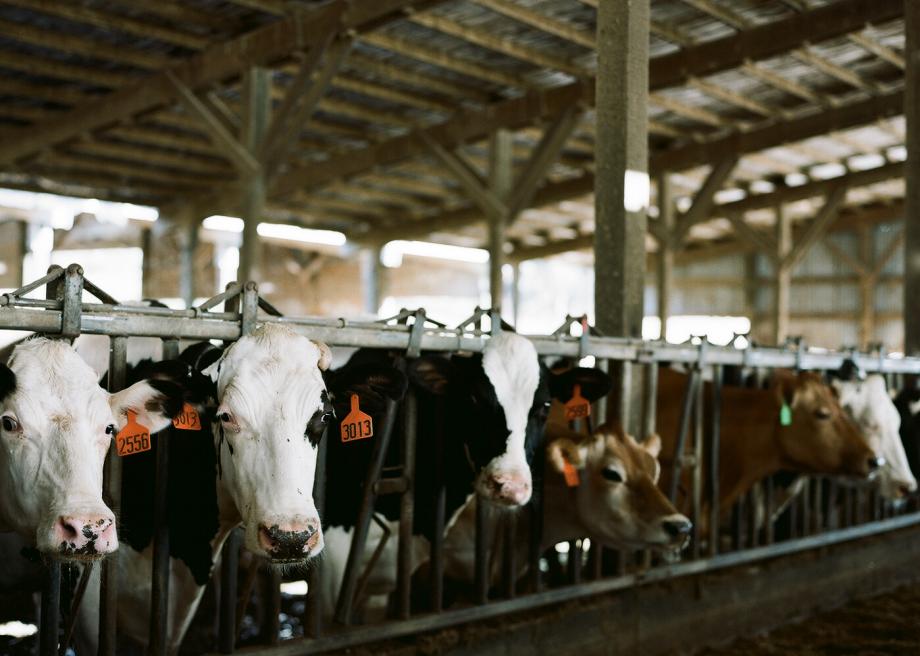
Industry analysts estimate that U.S. dairy contributes more than $140 billion in economic output, $29 billion in household earnings and is responsible for more than 900,000 jobs (based on economic analysis of direct and indirect economic impact of U.S. dairy from farm through processing).
But despite the lucrative and influential business, the industry faces major changes. Almost half of people in dairy farming management positions will be of retiring age within the next 15 years. So to keep up with demand for milk and dairy products, more farmers, including millennials, are needed to step up to the task.
In response to the need, the U.S. government created several programs to entice potential young farmers, including the Agriculture Act of 2014, where an extra $20 million a year will be pumped into USDA beginner farmer and rancher programs.
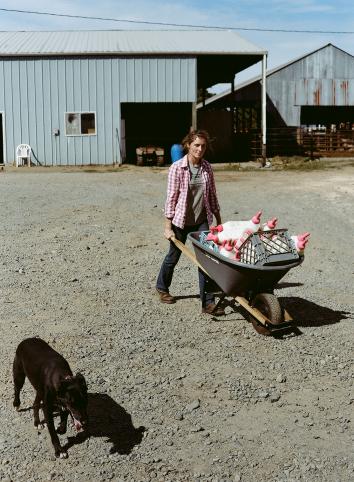
“It’s certainly a lifestyle,” said Frost. “You really have to love it.” She added that her great-grandfather lived until he was 94, and worked on the farm up until the last 18 months of his life.
But how does a recent college graduate rationalize a return to the farm? What does this tell us about the state of a modern American economy and the opportunities presented to young people? One might expect the typical millennial life portfolio of student loans, job search engines, social media, and a near constant barrage of lucrative, city-centric tech and service sector occupations to influence the decisions facing aspirational agriculturalists. Why would a talented, educated, entrepreneurial young person like Bobbi opt for a dairy over, say, daycare and a matched 401k?
“Health insurance and weekends off sounded enticing while I was in school for a little while, but the farm was always calling me back,” she said. But a return to the earth doesn’t mean a return to obscurity.
In fact, Frost argued that it is science and technology in general that allows farmers to get back to a simpler way of life. As more young people become a part of the farming industry’s leadership, more technology is being brought into the field (literally). “And that’s a great thing,” Frost said.
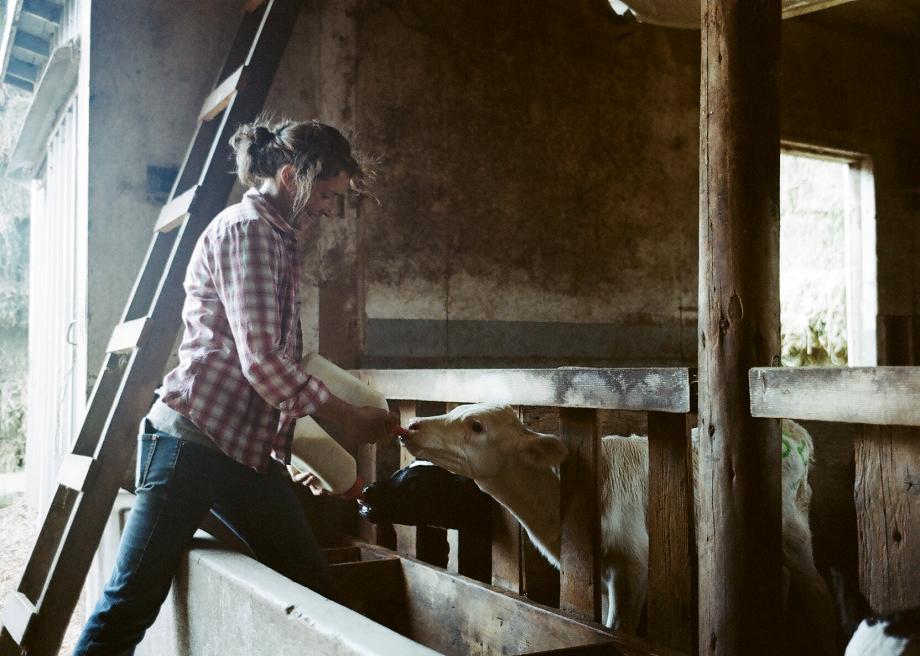
Robotic milkers and automatic calf feeders are a few of the items that Frost uses on a daily basis. Despite both machines being newer innovations, they have ironically ushered a return to a simpler times. The machines allow for the cows to eat and get milked when they need to, not when the farmers’ schedules allow.
“I'm no longer milking cows by hand, but I still use the same care and attention on those animals as my great grandfather. Our love for our cows and our land will never change— not in my generation, and hopefully not for my children, either,” said Frost.
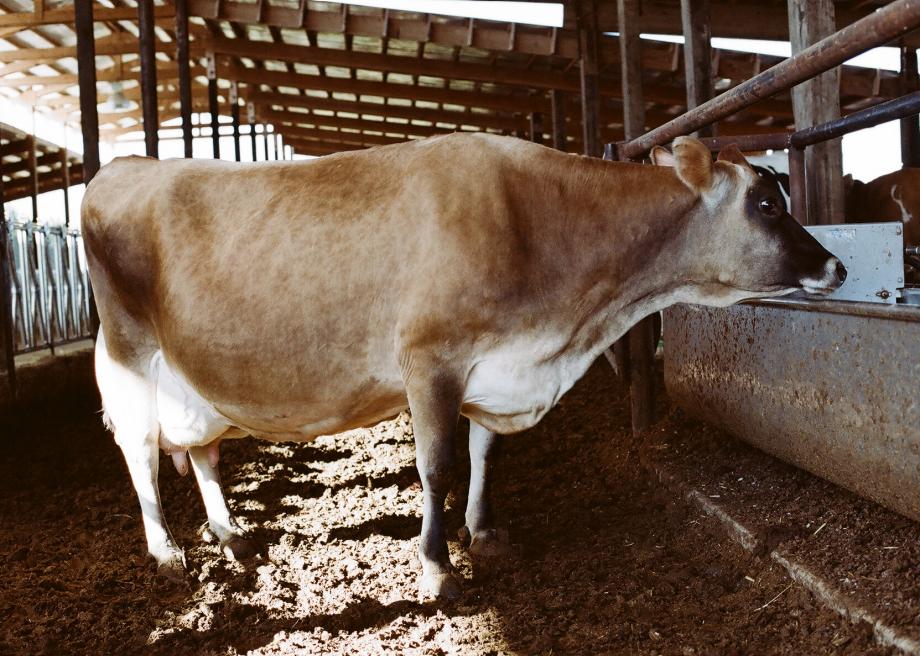
Like most millennials, Frost admits that she “lives and dies” by her smartphone. Specifically, she points to several dairy-specific apps that help her keep track of markets and dairy industry news. She also relies on many organizational apps to keep her workday straight. Calendars, appointments, and to-do lists are all on her phone.
“I even use my phone a lot when we are working on equipment,” said Frost. “As someone with not very much mechanical experience, it is a godsend to be able to get on a forum online and have someone explain to you how to do what you're doing. That's pretty awesome as a girl to be able to say that you can fix farm equipment by yourself.”
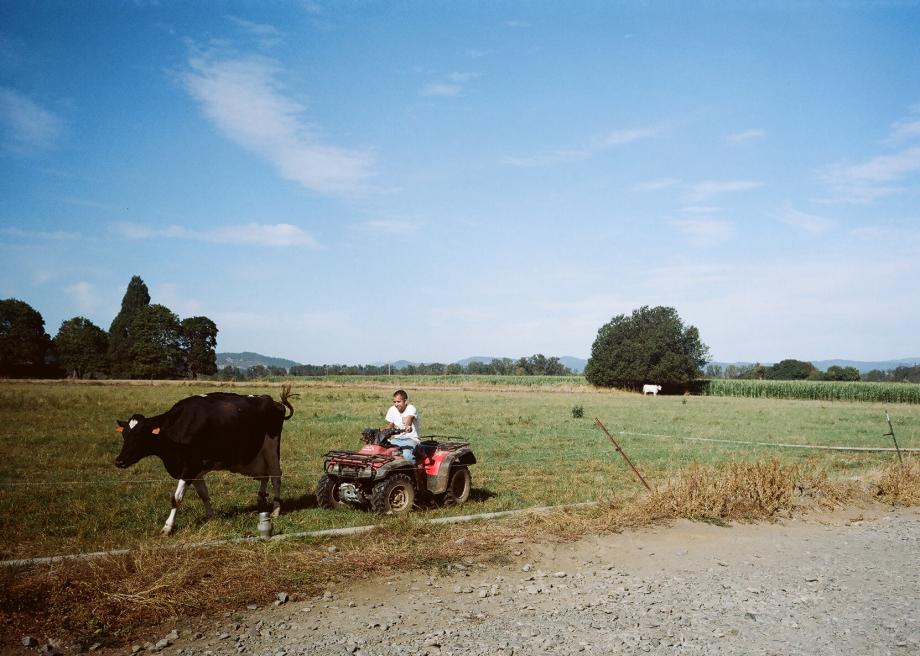
Urban farming is another new-wave trend to hit the agriculture scene, with tiny farms and gardens popping up all over American cities. As the amount of farmable land throughout the world continues to get smaller, there’s certainly a place for these low-impact agricultural areas, but on their own they’re not going to feed the world, which will have a population of about 9 billion people by 2050.
“I always look around while traveling through a city and think about how there’s a lot of concrete and not a lot of dirt, which you need a lot of to make food,” Frost continued.
She encourages consumers to consider where their agricultural products are cultivated, and to get to know their local farmers.
These days, transparency is a necessity among people and companies involved in food production. Even in Frost’s father’s generation, in the absence of social media and the Internet based watchdog agencies, expectations were quite different.
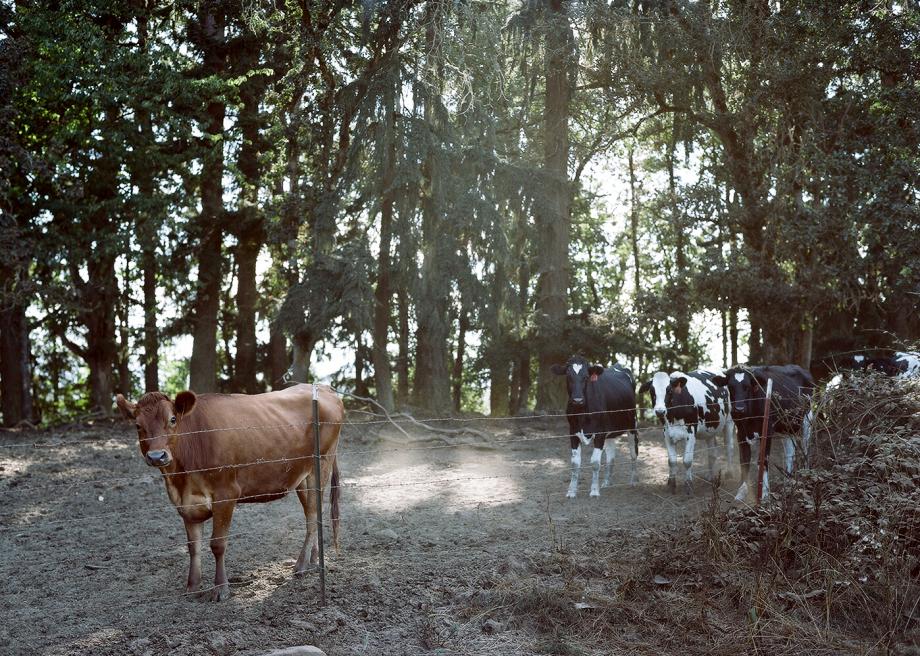
“Back then you did your job and nobody asked questions,” she said. “They just trusted that you were doing your job with as much care as they were doing theirs.”
So to accommodate these growing public expectations, Frost decided to join the conversation.
“I invest a huge amount of time into telling the story of our farm,” said Frost, who consistently updates the farm’s Facebook and Instagram pages so that people can see what is going on everyday. “If I can give them a little glimpse into what my day is like, I hope that means that they will trust me that much more. I don't have anything to hide on my farm and I hope that by being active in social media that attitude will be apparent.”
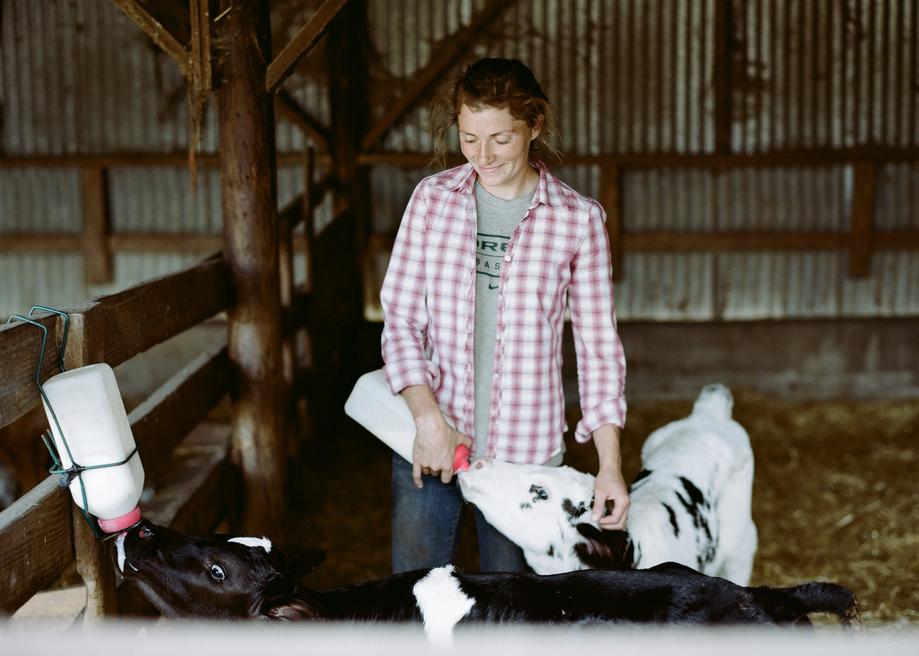
Whether a person owns a tiny bit of land with just a couple of animals or a farm that mass-produces with multiple harvest seasons, Frost said the great majority of people in the industry are involved because they love their animals, living off the land, and putting in the hard work day in and day out. The public learns this by getting to know local farmers and supporting local, which in turn, supports the community and creates hundreds of jobs. People also can research local farms online.
“I think this is a place where we have to make our voices heard,” said Frost.
